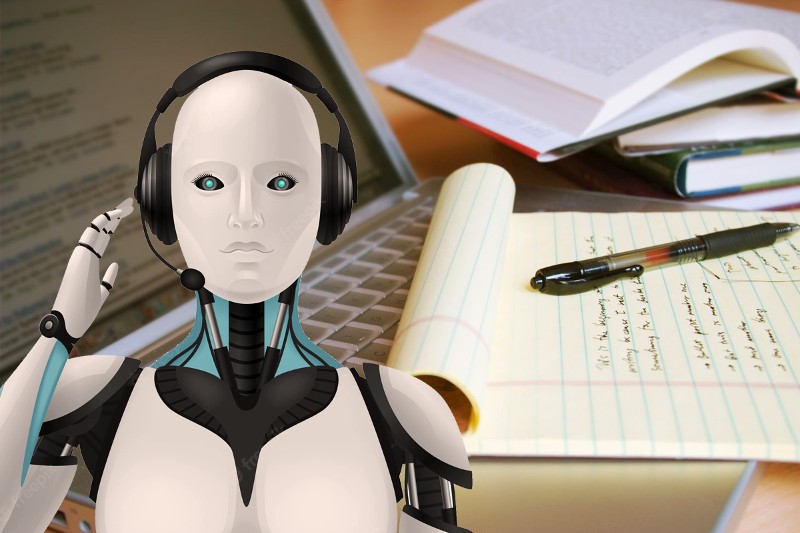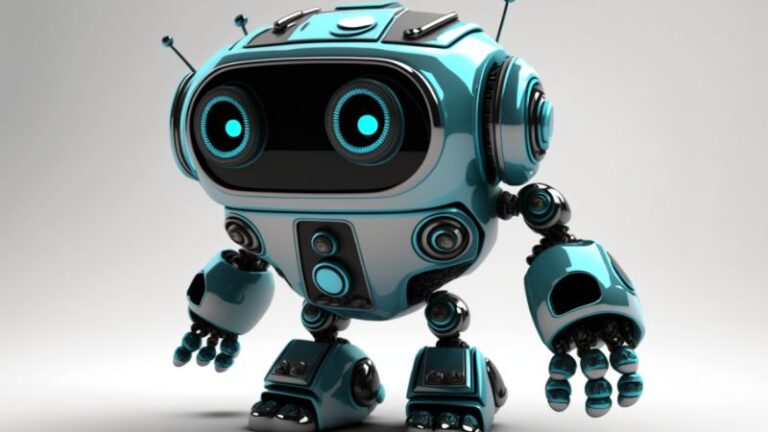Can ChatGPT Write a Better Research Paper than a Human?

ChatGPT is a computer program that converses like a human. You can ask it a question to get answers and carry on a conversation. The language model is designed for human interaction. It is based on GTP-3, a neural network machine learning model.
It can learn from the text on the internet to perform many independent tasks. Some applications even use ChatGPT as a writing tool to compose blog posts and articles.
Many people ask, “can ChatGPT write me a research paper similar to the ones on the website that help with research papers?”
ChatGPT’s task is not to help write research journals. However, let’s still explore the possibilities if the program is suitable to write your research paper.
Can ChatGPT Help You Write an Excellent Research Paper?
GTP-3 takes an input text to carry out different natural language tasks. ChatGPT does the same in a conversational way.
According to OpenAI, the tool can:
- Answer and ask follow-up questions
- Acknowledge its errors
- Reject incorrect information
The main task of the program is to provide a detailed response to any input. Its job is not to write your academic project.
You can use it for many purposes, like writing stories, poems, or social media posts.
However, the chat application is not suitable for doing academic assignments. It is also highly unsuitable for professional tasks like journals or theses.
Several limitations put a check on your abilities when you use an app to write research papers. So, it can never surpass a human in thinking, analyzing, or creative capabilities.
Let’s explore why a human is better to do your academic assignments.
Incorrect Answers
According to OpenAI, its tool sometimes gives inaccurate or nonsensical responses. It has no single source of truth and looks up the internet for information.
Therefore, your reply can contain inaccurate information, which is hated in scholarly circles. It can make your whole research invalid and harm your reputation.
Moreover, the replies depend on what the model knows. It does not take into account what the user intends, which is also impossible.
The company tried training the program but failed in its efforts.
Limited Input Size
ChatGPT has a limited input size. It can process only about 2,048 tokens, as per TechTarget.
Therefore, you cannot provide all the information to write a paper. You might be able to enter only your thesis statement.
The limitation makes the tool unsuitable for many types of academic papers. For example, clinical trials or interpreting surveys, or policy analyses.
You may only write review articles that summarize existing literature on a topic.

Inconsistency
OpenAI says ChatGPT is sensitive to the phrasing of your input text. You may get different responses by changing the wording of your query.
Sometimes, it may not be able to answer for the same reason.
As a result, you cannot rely on the program to generate consistent results. A change in one or two words in your input can give you a different perspective.
The resulting response may not always be helpful for your research paper. The information may also differ in various responses.
Moreover, the model cannot explain the reasons for the discrepancies.
Mimicry
According to TechTarget, GTP-3 suffers from the challenges of mimicry. The limitation extends to ChatGPT, which writes human-like text.
Needless to say, these tools don’t focus on plagiarism. They may simply copy or rephrase sentences from an online source.
Moreover, your papers can contain plagiarized ideas and concepts. Professional submission platforms like Turnitin may be able to spot the red flags in your paper instantly.
So, you will have to verify and recheck every piece of information and sentence. The job can get as challenging as verifying degrees for recruitment.
A better approach is to put in some effort and write your research paper. You will not have to worry about originality.
Guesswork
An academic journal must contain accurate information. It should analyze the facts and present logical arguments.
There is no room for guesswork, whether it’s your thesis or a professional journal.
However, ChatGPT is prone to making assumptions, especially for ambiguous queries. It tries to guess what the user is thinking instead of asking clarifying questions.
As a result, your papers may turn out to be different from what you intend. You also cannot explain your query in detail due to the input size restriction.
Therefore, your whole purpose goes to defeat.
Repetitions
OpenAI’s program overuses certain phrases and ideas. For example, many responses contain the information that it is a tool from the company.
Such information is unnecessary and best avoided in your journals. You really don’t want your professors or fellow scholars to know you are using a tool.
Additionally, the app may repeat the same things several times in your response. It will make your work look unprofessional.
You will even lose grades for such actions if you are in a college or university. Scholarly circles and publications may even ban your writing.
Quality Issues
You will experience several issues with ChatGPT that lowers the quality of your papers. Here’s a recap of some of the limitations you are likely to face:
- Varying responses to similar inputs
- Plagiarism issues
- Inaccuracy
- Repetitions
- Guesswork
All of the above work to put you in a bad light. Your project turns out to be the worst among your peers or in your class.
Moreover, you will never get deserving grades. It might even hamper your career and opportunities for higher studies or employment.
Bias
Humans are not the only ones to experience bias. Machines and computer applications also suffer from the same problem.
Machine learning models learn from available information. GTP-3 relies on information collected from the internet.
As a result, it picks up biases and conceptions that humans carry. The same applies to OpenAI’s tool that may promote hate speech or ideas.
Worst of all, they may generate radical text or content.
All of the above is not suitable for any professional paper. It can contain a view that you don’t agree with and didn’t intend to write.
OpenAI tries to limit such incidents using user feedback and training. However, such incidents are not uncommon.

Time
ChatGPT suffers from a slow interference time, according to TechTarget. It takes a long time to generate a response to your query.
Now, imagine how long it will take to compose thousands of words on a topic.
Additionally, you deal with multiple limitations that force you to perform several checks. You are likely to spend hours correcting and editing your response.
A better choice is to do your project from scratch. You can seek help from an expert to guide you along the process.
Final Thoughts
ChatGPT is suitable for generating a detailed response to a query. Its job is not to help you become a scholar or pass your semester.
Moreover, several limitations make the idea challenging even to try out. Your project will be full of errors, inaccurate information, and biased views.
Additionally, you cannot expect the tool to follow your intentions. It can substitute vagueness with guesswork to compose a totally different text.
So, no computer program can surpass human capabilities when it comes to things like writing. They are fit for trivial things, like creating social media posts.






